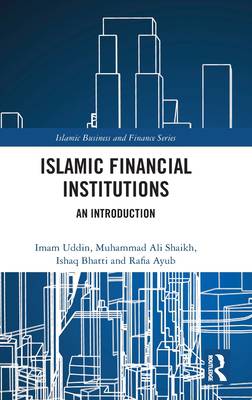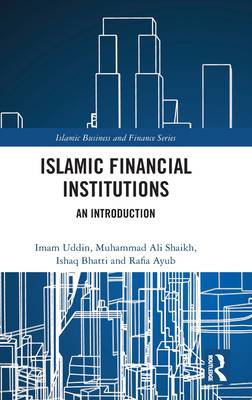
- Afhalen na 1 uur in een winkel met voorraad
- Gratis thuislevering in België
- Ruim aanbod met 7 miljoen producten
- Afhalen na 1 uur in een winkel met voorraad
- Gratis thuislevering in België
- Ruim aanbod met 7 miljoen producten
Islamic Financial Institutions
An Introduction
Imam Uddin, Muhammad Ali Shaikh, M Ishaq Bhatti, Rafia AyubOmschrijving
This book provides a comprehensive overview of Islamic Financial Institutions, exploring current issues, including governance, Shariah compliance frameworks and regulatory aspects, as well as the principles involved in product structuring.
It offers a basic understanding of Islamic financial instruments and their implementation in different regions. The book begins by introducing the Islamic financial system, its objectives, the financial intermediation process, the philosophy and methods of mobilization and utilization of funds followed by an overall comparison with the conventional financial system. It offers a definition and explanation of types of riba, sources of prohibition, the difference between riba and profit, types of transactions which involve interest and the adverse effects of interest on the economy. It covers a detailed study of Islamic financial contracts and discusses trade-based financing products, illustrating the structural and legal differences between conventional and trade-based financing products. Further, the book outlines the criteria for the determination of Shariah compliant status of equity securities, and the role and functions of capital markets in an Islamic framework. Finally, it goes on to present an overall model of an Islamic bank in comparison with a conventional bank, examining its methodology and procedures for ensuring shariah compliance, governance and regulation, keeping in view the operating strategies, risk management issues, liquidity requirements and so on.
The book will be used by researchers, students and scholars of Islamic Banking and Finance and will also serve as a practical guide for bankers and finance professionals who wish to enhance their knowledge in the field, as well as those embarking on professional training or certification programs.
Specificaties
Betrokkenen
- Auteur(s):
- Uitgeverij:
Inhoud
- Aantal bladzijden:
- 262
- Taal:
- Engels
- Reeks:
Eigenschappen
- Productcode (EAN):
- 9781032789323
- Verschijningsdatum:
- 13/12/2024
- Uitvoering:
- Hardcover
- Formaat:
- Genaaid
- Afmetingen:
- 156 mm x 234 mm
- Gewicht:
- 580 g

Alleen bij Standaard Boekhandel
Beoordelingen
We publiceren alleen reviews die voldoen aan de voorwaarden voor reviews. Bekijk onze voorwaarden voor reviews.












